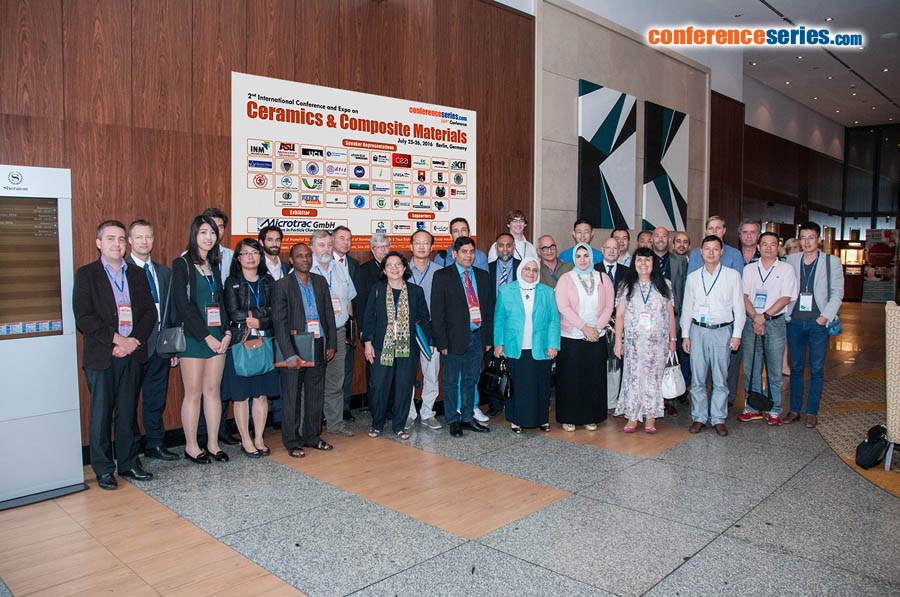
Zih-Jyun Chen
Tunghai University, Taiwan
Title: Synthesis of novel composite based on carbon nanotube for electrochemical application
Biography
Biography: Zih-Jyun Chen
Abstract
Electrochemical oxidation involving hydroxl radical generation is a greener way to remove bioresistant organics in aqueous solution. The removal process does not need auxiliary agents if the used electrode is effective. The activity of the electrode is principally dominated by the electrode materials. In this study, a novel composite based on the carbon nanotubes was synthesized and further applied on the degradation of organic compound of phenol. The growth step of carbon nanotubes on carbon fiber (CF) was via catalytic chemical vapor deposition (C-CVD) to obtain a base electrode (CNTs/CF). CNTs/CF material further prepared with alloy RuPt catalyst to synthesize RuPt-CNTs/CF electrode. The properties of RuPt catalyst and PtRu-CNTs/CF electrodes was determined by transmission electron microscopy (TEM), X-ray diffraction (XRD) and Cyclic Voltammetry (CV). TEM morphology pictures proved that the synthesized catalysts and CNTs belonged to nanoscale. XRD patterns displayed crystal characteristics of electrocatalysts. The heating rate was used to investigate the dispersion of PtRu nano-particles. The results of CV indicated that PtRu-CNTs/CF possessed higher capacitance of 2.48×10-2 F cm-2. The electrochemical oxidation of phenol was conducted in sulfuric acid media. The oxidation efficiency of phenol increased when concentration of electrolyte decreased. Mineralization efficiency of phenol was also detected during oxidation processes. The highest rate constant of 0.0419 min-1 by means of pseudo-first-order equation was obtained in 0.01 M H2SO4 electrolyte. This study gave evidence that CNTs supported electrode were successfully synthesized and PtRu-CNTs/CF was promising electrode materials for phenol treatment in electrochemical process.
Speaker Presentations
Speaker PPTs Click Here


